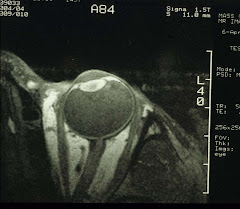 It is a well-known story: When his 9th (the Choral) Symphony premiered on May 7, 1824, in the Kärntnertortheater in Vienna, the audience went wild. Ludwig van Beethoven (1770-1827) by then, however, was totally deaf. Contralto soloist, Karoline Unger, had to help turn him around to face the cheering crowd. There were 5 ovations all together, the ultimate respect for a common man (the police stopped further ovations in deference to the royalties who customarily were accorded three). It must have been quite a moving sight.
It is a well-known story: When his 9th (the Choral) Symphony premiered on May 7, 1824, in the Kärntnertortheater in Vienna, the audience went wild. Ludwig van Beethoven (1770-1827) by then, however, was totally deaf. Contralto soloist, Karoline Unger, had to help turn him around to face the cheering crowd. There were 5 ovations all together, the ultimate respect for a common man (the police stopped further ovations in deference to the royalties who customarily were accorded three). It must have been quite a moving sight.Beethoven indeed had put all his heart and soul into this symphony. In fact, despite the common belief that the vocal part of the 4th movement, Ode to Joy, was a poem borrowed from Frederich Schiller (1759-1805), Beethoven himself actually wrote portions of it. For example, at the very beginning of the vocal part, i.e., the baritone solo starting on bar 216:
- O Freunde, nicht diese Töne!
- Sondern laßt uns angenehmere anstimmen,
- und freudenvollere.
- Freude! Freude!
Something about Beethoven's eyes? Ah, yes, we are just coming around to that.
The etiology of Beethoven's deafness has never been clear. Several possibilities have been put forth including otosclerosis, syphilis, noise trauma, Paget’s disease, sarcoidosis, and otitis media. None of them was conclusive, however.
It is known that Beethoven suffered from digestive diseases plus rheumatism, various skin abscesses and recurrent infections, ophthalmia, jaundice, and anemia. Ophthalmia? An old term for inflammation of the membranes/coats of the eye, i.e., iritis/uveitis. This, plus Beethoven's own admission of "constant belly aches, diarrhea and bloody stools" suggests that he might have a bad case of ulcerative colitis or Crohn's disease - both of which are associated episodically with deafness.
So the best guess is then: Beethoven's deafness was an immunopathic manifestation of Inflammatory Bowel Disease (IBD). And iritis/uveitis no doubt flared up from time to time. Unfortunately, after the autopsy, the coroner's report concentrated on the liver and the abdominal fluid, with nothing on the intestines. So we'll never know for sure.
There is a lesson here, though: Patients with IBD need to have their eyes (especially the retina) and ears (at least the hearing) examined regularly - particularly for musicians and composers.










